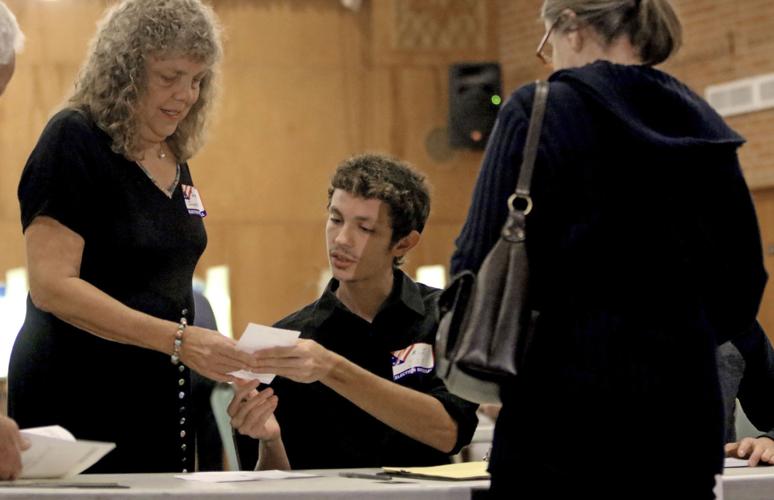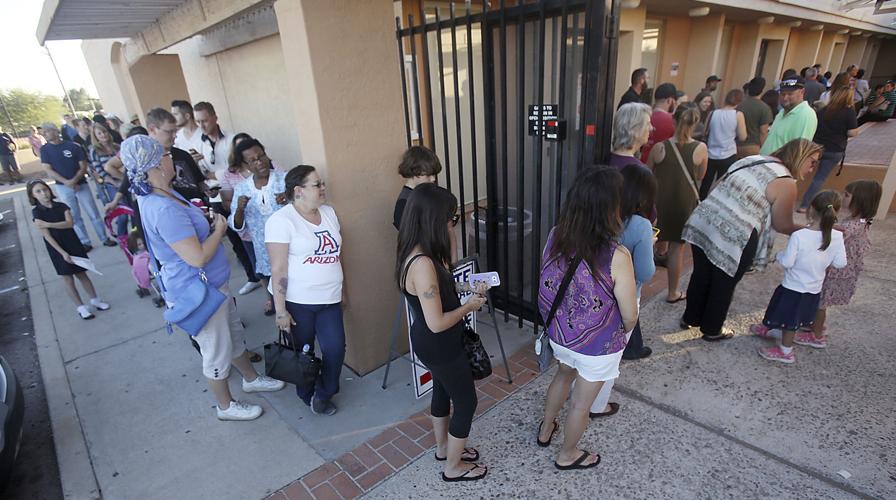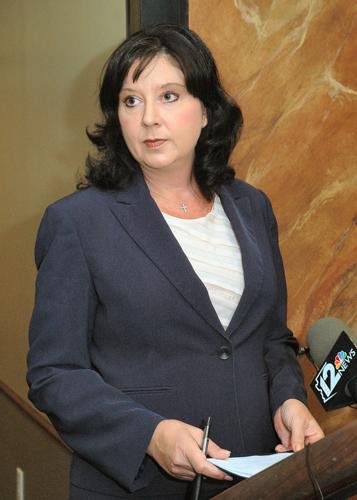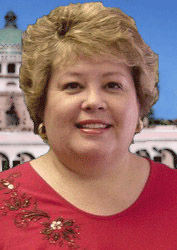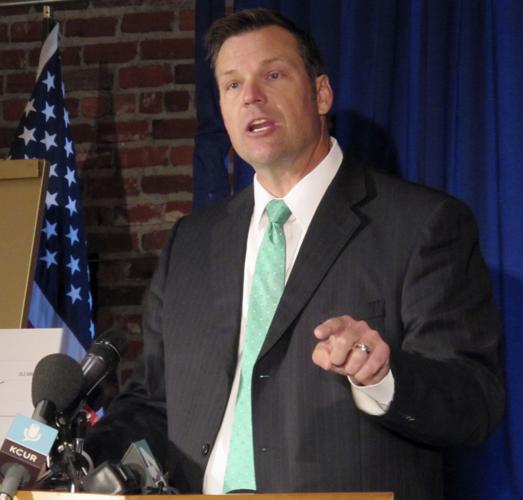PHOENIX — The state’s top election official is preparing to turn over data on Arizona’s 3.6 million registered voters to the head of a Trump-created commission exploring elections fraud.
Arizona Secretary of State Michele Reagan said Friday that Kris Kobach, who is making the same request of all 50 states, is entitled to “the same redacted information that is available to the general public through a public-records request.”
Reagan, like Kobach a Republican, said he won’t get everything he wants.
She said state law precludes her from giving out the last four digits of voters’ Social Security numbers. And the data will not include a date of birth but will give the birth year.
Kobach, an ally of President Trump who contends more than a million people illegally in the country voted in the last election, may not be entitled to even that much data, said Maricopa County Recorder Adrian Fontes, a Democrat.
Fontes agreed that Arizona law does make the records public.
But he said the law also says information in registration records can be used only for political party activity, campaigns, revising voter precinct boundaries and other purposes “specifically authorized by law.” He contends that does not include Kobach’s purported interest, even for purposes of a presidential commission.
Fontes said that Kobach, in his letter to state election officials, told them that whatever they turn over to him will, in turn, be made public by the Presidential Advisory Commission on Election Integrity.
“Here’s Kris Kobach, running around and telling everybody that they’re going to publish everything all over the place,” Fontes said. “That’s voter suppression.”
He said people already are worried.
“I’ve already got voters calling me, asking me how they can unregister to vote because they don’t want Donald Trump to have their voter information,” Fontes said.
He said there’s reason for concern, citing what he described as Kobach’s “history of voter suppression” as secretary of state in Kansas. The American Civil Liberties Union says it has sued Kobach successfully four times over his practices.
Democratic Pima County Recorder F. Ann Rodriguez had her own questions about why Kobach should get the information.
“What is the goal, what is the objective?” she asked.
Rodriguez also noted that the request, while on commission letterhead, appears to come strictly from Kobach. She questioned whether this is what the commission, or just Kobach, wants.
But David Stevens, her Cochise County counterpart, said Kobach’s intent may not matter legally.
“The voting records are public if you come into my office,” said Stevens, a Republican. He said anyone can purchase the list as long as it’s not for commercial purposes.
Reagan hasn’t received her copy of the letter, which already has been sent to election officials in several other states, said her spokesman, Matt Roberts.
He said a formal response to Kobach will come once that happens.
Trump established the commission in May, naming Kobach and Vice President Mike Pence as co-chairs. Among its duties are to find laws, rules, policies and practices that “undermine the American people’s confidence in the integrity of the voting processes used in federal elections” and “vulnerabilities” that could lead to fraudulent registration and voting.
But the choice of Kobach has led to fears the commission is being guided to a preconceived conclusion that there is massive voter fraud.
For example, Kobach told Fox Business in January that “probably in excess of a million” people who are not citizens voted in the 2016 election and that Trump might have won the popular vote over Hillary Clinton but for “really big states like California, Texas ... that have a large alien population.”
Virginia Gov. Terry McAuliffe said he won’t honor the request, questioning Kobach’s agenda.
“At best this commission was set up as a pretext to validate Donald Trump’s alternative election facts, and at worst is a tool to commit large-scale voter suppression,” said McAuliffe, former chairman of the Democratic National Committee.
Connecticut Secretary of State Denise Merrill said she will share publicly available information “in the spirit of transparency.” But Merrill, a Democrat, echoed the concerns of Rodriguez about the panel.
“State officials have not been told precisely what the commission is looking for,” Merrill said. She said there’s reason to be suspicious, saying Kobach “has a lengthy record of illegally disenfranchising eligible voters in Kansas,” methods she said have been “repudiated” by the courts.
This isn’t just a partisan divide.
“They can go jump in the Gulf of Mexico,” Mississippi Secretary of State Delbert Hosemann, a Republican, said in a prepared statement Friday about the request. “And Mississippi is a great state to launch from.”
The White House struck back Friday. Spokeswoman Sarah Huckabee Sanders told reporters that objections by some officials are “mostly a political stunt.”
Roberts said Arizona’s Reagan is not focused on the politics swirling around Kobach and the commission.
“At the end of the day, this is a records request, and it shouldn’t matter who is making that request,” he said. “It’s not necessarily our job to determine who gets information and who doesn’t.”
As to Kobach’s contentions of massive voter fraud, Roberts said that, at least for Arizona, Reagan does not share that view.
He said there have been “several instances” of people voting twice, specifically in Arizona and in another state. But Roberts said Arizona has protections against ineligible people casting ballots, including a requirement to provide proof of citizenship when registering.
“Does it occur? Certainly,” Roberts said. “Is it a widespread problem? I don’t think the secretary feels that this is something that is widespread in Arizona because of the laws that we have in place.”
Other states are coming down on the same side as Reagan.
In New Hampshire, Secretary of State William Gardner told WMUR he will comply. He said what Kobach wants will help cross-check to make sure people are not voting twice in federal elections.
What makes that noteworthy is that Trump argued he lost New Hampshire because people were being bused into the state from Massachusetts to vote illegally, taking advantage of New Hampshire’s same-day registration. But Gardner denied at the time there was widespread voter fraud in his state.
Kobach, then a law professor at the University of Missouri-Kansas City, helped craft SB 1070, Arizona’s 2010 law designed to give police more power to detain and question those who they suspect are not in this country legally.



